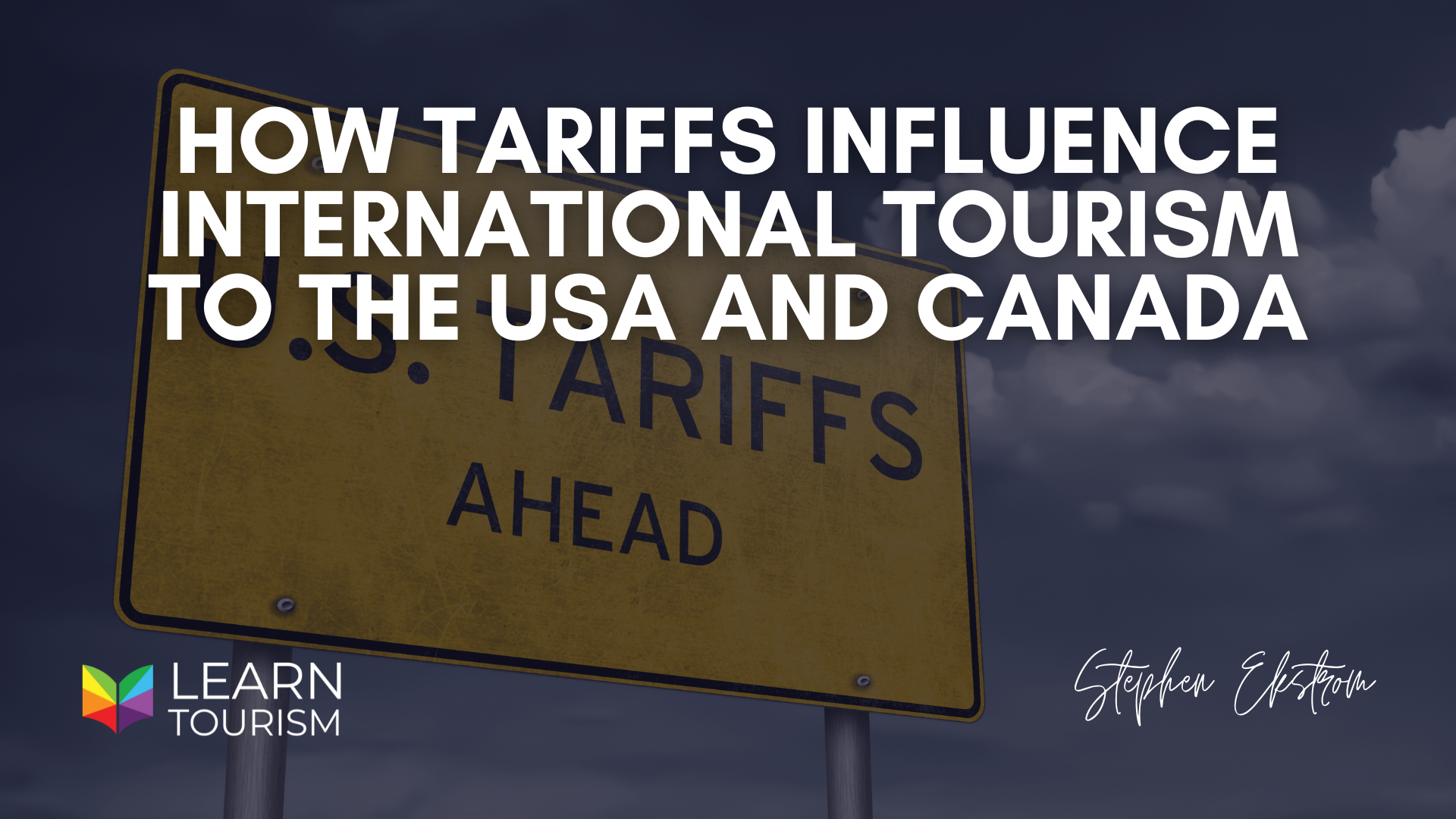
How Tariffs Influence International Tourism to the USA and Canada
How Tariffs Influence International Tourism to the USA and Canada
Tariffs—those seemingly distant instruments of international trade policy—have ripple effects that extend well beyond cargo ships and customs declarations. One sector especially vulnerable to these ripples is tourism. As nations adjust import taxes and trade barriers, tourism markets, particularly in North America, can experience dramatic shifts in visitor numbers, traveler sentiment, and spending behavior.
The Tariff-Tourism Connection: More Than Just Trade
While tariffs are imposed to protect domestic industries or as leverage in international negotiations, they inadvertently alter the economic environment for global travel. International visitors to the USA and Canada often find themselves at the intersection of policy and purchasing power. Here's how:
1. Currency Devaluation and Price Sensitivity
Tariff retaliation from other nations often includes currency manipulation or natural market reactions that weaken local currencies. When the US dollar strengthens relative to others, it makes American goods—and vacations—more expensive for foreign tourists. The same logic applies to Canada when retaliatory tariffs spark inflation or currency adjustments.
According to the U.S. Travel Association, even a modest 10% increase in travel costs can reduce inbound tourism by 6-8%, particularly among price-sensitive markets like Latin America and Asia.
2. Cross-Border Shopping Takes a Hit
Regions like Buffalo–Niagara or Vancouver–Seattle, which rely on cross-border day-trippers and weekend visitors, suffer when tariffs increase the cost of consumer goods. Canadian shoppers heading to the US for deals may reconsider when duties or retaliatory measures raise prices.
This impacts not only retail but also hospitality, attractions, and transportation, leading to job losses and reduced tax revenue.
3. Perception and Diplomatic Fallout
Tariffs can stir political tension. Visitors from countries embroiled in trade disputes may avoid destinations perceived as unwelcoming or unstable. Tourism is often emotional as much as financial—when policies seem to target one’s home country, traveler enthusiasm wanes.
For example, during the U.S.–China trade war, Chinese bookings to the U.S. dropped by nearly 12% in 2019, according to the National Travel and Tourism Office.
4. Increased Operating Costs for Tourism Businesses
When tariffs increase the price of imported goods—everything from linens to food to electronics—hotels, restaurants, and tour operators pass those costs on to visitors. Higher package prices reduce competitiveness with other international destinations like Mexico or Europe.
As one hospitality professional at the Learn Tourism academy shared, “Every cost we absorb affects our ability to stay competitive and attract international visitors who are watching exchange rates and overall costs closely.”
5. Barriers to Travel-Related Products and Infrastructure
Tariffs can also impact the availability of tourism-enabling infrastructure. For instance, higher costs for imported buses, technology, or building materials can delay or derail hotel renovations, transportation upgrades, and entertainment venues—all critical to delivering a world-class visitor experience.
Canada and the US: Two Neighbors, Similar Challenges
Though their tariff policies may differ, Canada and the USA often face shared consequences. Canadian tourism depends heavily on American and international visitors alike, and any economic stress on consumers—be it due to tariffs or inflation—impacts travel demand. Similarly, Canadian retaliatory tariffs (like those on U.S. steel or consumer goods) have raised costs in their own tourism ecosystem.
The Tourism Industry Association of Canada has highlighted how tariff-related inflation squeezes the margins of operators already stretched thin by labor shortages and global competition.
Strategic Recommendations for Tourism Professionals
To navigate the uncertain waters of trade policy:
-
Monitor trade developments to anticipate changes in visitor trends.
-
Diversify source markets to reduce reliance on any one international audience.
-
Invest in domestic tourism training with resources like Learn Tourism the nonprofit academy to ensure local professionals are empowered, informed, and adaptable.
-
Build resilient pricing strategies that account for fluctuations in supply chain costs.
“One of the best ways to prepare for global shifts in tourism demand is to build local capacity. Training, adaptability, and smart partnerships matter more than ever.”
— Stephen Ekstrom, CEO & Cofounder, Learn Tourism
About Learn Tourism the nonprofit academy...
Learn Tourism is a 501c3 nonprofit organization dedicated to advancing the tourism industry through innovative educational practices and professional development initiatives. Our mission is to harness the power of science, business psychology, and adult education to build sustainable economies and enrich the tourism landscape.
About the Author: Stephen Ekstrom
Stephen Ekstrom is the embodiment of a passionate lifelong learner and a seasoned professional in the tourism industry, serving as the CEO and co-founder of Learn Tourism - the nonprofit academy. With over 25 years of experience, he has cultivated a deep understanding of tourism development and education, driven by his commitment to advancing the industry and fostering sustainable economies. Stephen's insatiable curiosity and love for knowledge have led him to be a proud nerd, constantly seeking to expand his expertise and share his insights with others. Alongside his faithful furry companions, Rudy and Marjorie, he embraces the digital nomad lifestyle, traversing the globe and immersing himself in diverse cultures. A dedicated advocate for continuous improvement, Stephen is a professional member of the Association for Talent Development and a member of Skal International. Stephen holds prestigious certifications in Inclusive and Ethical Leadership from USF, AI Governance and Ethics from Brown University, and Sustainable Business Strategy from Harvard Business School.